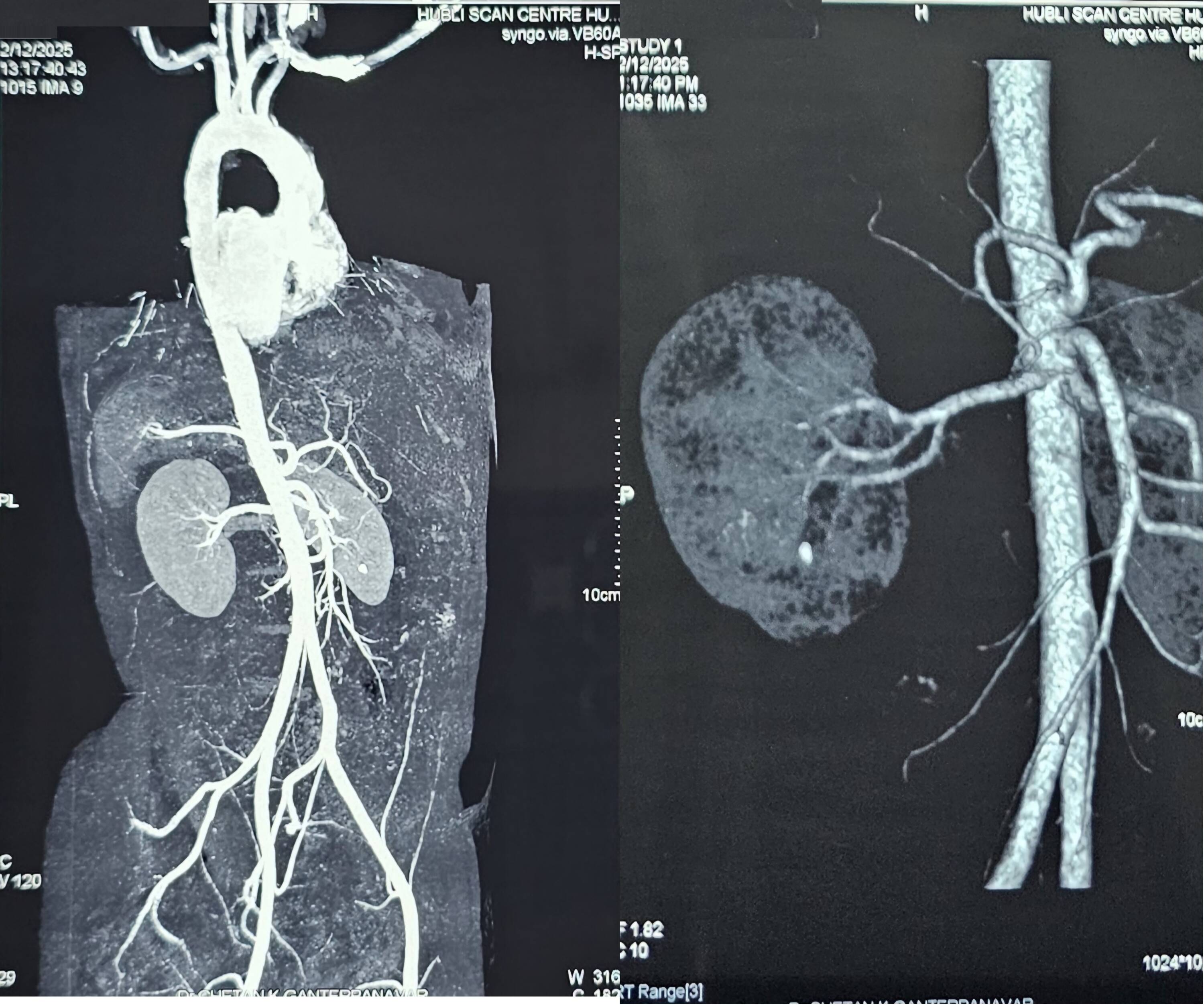In today's fast-paced world, unhealthy lifestyles have become the norm. Lack of exercise, frequent dining at hotels and restaurants, stressful jobs, and disrupted sleep patterns contribute significantly to lifestyle-related diseases. Among these, hypertension or high blood pressure (BP) is emerging as a major concern, even among individuals as young as 18 to 20 years. Decades ago, doctors rarely checked BP in young adults, but today, no age group can be ignored. I, Dr. Chetan K Ganteppanavar, Consultant Physician in Hubli, share my clinical experiences with young hypertensive patients, emphasizing the need for early detection and management.
Case Studies on Hypertension in Young Adults
Patient 1: A 22-Year-Old Medical Student with Severe Hypertension
A 22-year-old medical student casually asked his colleague to check his BP, only to discover a shocking reading of 200/100 mmHg. This was confirmed using a different machine. He was tall and overweight, with a stressful work schedule, poor dietary habits, and no regular exercise. Family history revealed diabetes, hypertension, and premature cardiac atherosclerotic diseases. Despite extensive blood tests and imaging, no secondary cause was identified. A strict low-salt diet, weight loss regimen, and regular exercise were recommended. With adherence to these lifestyle modifications, along with Telmisartan, Cilnidipine, and Minoxidil, his BP was brought under control.
Patient 2: A 20-Year-Old MBBS Student Diagnosed with Primary Hypertension
A 20-year-old MBBS student admitted for Rickettsial fever was found to have a BP of 180/110 mmHg. A significant family history of hypertension was noted. His diet was predominantly non-vegetarian, and he frequently ate at the hostel or restaurants. Although physically active in sports twice a week, his BP remained elevated. Extensive investigations, including CT abdomen with aortogram and renal artery angiogram, ruled out secondary causes. He was diagnosed with primary hypertension and treated with Telmisartan, Cilnidipine, and Chlorthalidone.
Patient 3: A 24-Year-Old MD Aspirant with Anxiety and Hypertension
A 24-year-old preparing for MD exams presented with anger outbursts, palpitations, insomnia, and anxiety, exacerbated by tea and coffee. On examination, he had short stature, Grade I obesity, acanthosis nigricans, and a BP of 150/100 mmHg. His family history was significant for diabetes and hypertension. Work-up for secondary hypertension was negative. Diagnosed with primary hypertension, he was started on Metoprolol and Telmisartan, which controlled both his BP and anxiety symptoms.
Patient 4: A 23-Year-Old MBBS Student with Recurrent Headaches
A 23-year-old final-year MBBS student presented with recurrent headaches and was found to have BP >160/90 mmHg. He was obese, had poor dietary habits, and led a sedentary lifestyle. Unlike the other cases, there was no significant family history. A thorough evaluation ruled out secondary causes such as hypokalemic hypertension, pheochromocytoma, and carotid body tumors. Diagnosed with primary hypertension, he was successfully managed with Telmisartan and Cilnidipine.

Hypertension in Young Adults : A Growing Concern
The cases above highlight a worrying trend—hypertension among young medical professionals, a demographic that constitutes less than 0.05% of the general population. If such high numbers are seen among doctors, the prevalence in the general population could be significantly greater.
Young individuals diagnosed with hypertension require extensive evaluation to rule out secondary causes like hyperthyroidism, pituitary tumors, renal artery stenosis, coarctation of the aorta, pheochromocytoma, and renin-angiotensin abnormalities.
Managing Hypertension needs a Multi-Faceted approach:
First-line agents like Calcium Channel Blockers (CCBs), Beta-Blockers, Angiotensin-Converting Enzyme Inhibitors (ACEi), Angiotensin Receptor Blockers (ARBs), and Diuretics. The cornerstones of management are: Low salt diet avoiding processed foods, regular physical activity – 150 minutes/week along with yoga, meditation, and good sleep, early detection through regular health check-ups, avoiding caffeine, alcohol, and tobacco, and adequate hydration.
Potential Complications of Uncontrolled Hypertension :
Increased risk of heart attack, left ventricular hypertrophy, and heart failure, chronic kidney disease, dialysis dependency, hemorrhagic or ischemic strokes, retinopathy leading to vision problems, gangrene , peripheral vascular disease and dementia.
Conclusion :
Hypertension in young adults is no longer a rarity. The modern lifestyle, characterized by stress, poor diet, and lack of exercise, is fueling its rise. Early screening, comprehensive evaluation, and timely intervention are crucial in preventing long-term complications such as cardiovascular diseases, kidney failure, and stroke. As healthcare professionals, we must lead by example, adopting healthier lifestyles and promoting awareness among the general population.
For those looking for the best doctor in Hubli for hypertension management, expert consultation, and comprehensive care, I, Dr. Chetan K Ganteppanavar, an experienced physician in Hubli, am dedicated to providing personalized and evidence-based treatment approaches for my patients.
Dr. Chetan K Ganteppanavar
Physician & Diabetologist, Hubli, Karnataka, India
